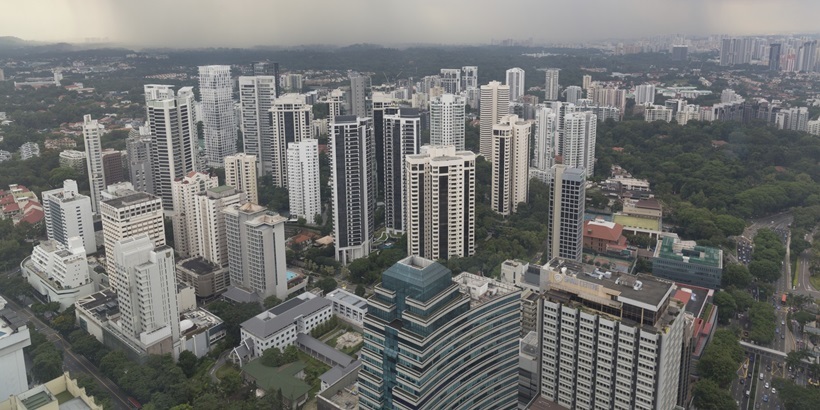Some analysts believe there is a case for an easing of measures.
Credit Suisse believes that the time is ripe for an easing of some of the property cooling measures,
given that several of its objectives have been met.
given that several of its objectives have been met.
Speculative activities, for instance, have significantly dropped as monthly sub-sales now stand at
just two percent of total volumes. Foreign demand has also been curbed significantly with overall
foreigner buying at seven percent of total volumes, while housing affordability has improved substantially
with incomes having outpaced home prices, both on a short-term and long-term perspective.
just two percent of total volumes. Foreign demand has also been curbed significantly with overall
foreigner buying at seven percent of total volumes, while housing affordability has improved substantially
with incomes having outpaced home prices, both on a short-term and long-term perspective.
The financial services firm revealed that achieving a sustainable and stable property market has been
the government’s main objective ever since it rolled out eight rounds of property curbs since 2009.
the government’s main objective ever since it rolled out eight rounds of property curbs since 2009.
“While it is imperative to retain the Total Debt Servicing Ratio (TDSR) framework and loan-to-value
restrictions to ensure financial prudence amongst households, we believe that stamp duty measures,
such as the Additional Buyers Stamp Duty (ABSD) and Sellers Stamp Duty (SSD), add extraneous
frictional costs in the current soft property, economic and labour market,” it said.
restrictions to ensure financial prudence amongst households, we believe that stamp duty measures,
such as the Additional Buyers Stamp Duty (ABSD) and Sellers Stamp Duty (SSD), add extraneous
frictional costs in the current soft property, economic and labour market,” it said.
“Given the weakening macro outlook, further adjustments to property cooling measures would be one
of the range of policies the government can use to combat a slowdown.”
of the range of policies the government can use to combat a slowdown.”
Credit Suisse noted that an easing of the SSD measures would allow “stretched households to offload
their investment properties and alleviate their financial situation, while an easing of the ABSD could
allow those who are financially able to re-enter the market to support such sellers”.
their investment properties and alleviate their financial situation, while an easing of the ABSD could
allow those who are financially able to re-enter the market to support such sellers”.
Romesh Navaratnarajah • January 12, 2017
Romesh Navaratnarajah, Senior Editor at PropertyGuru, edited this story.
To contact him about this or other stories, email romesh@propertyguru.com.sg
To contact him about this or other stories, email romesh@propertyguru.com.sg

